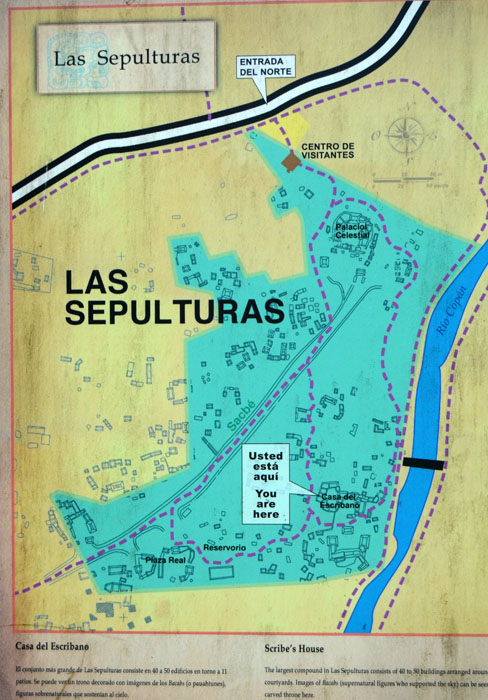
Copan Sepulturas
Sometimes I think that the museum should have been the first stop, but that is psychologically too difficult to pursue. After all, ruins first, then the rest. Before I went to the museum on the second day, I went to another site called Las Sepulturas. That's where the top artisans, the astronomer, royals, and some other nobles lived, next to the Copan River. The site was also in control of water distribution. Water was power, still is in many parts of the world, and will be, as long as humans are on this planet. |
 |
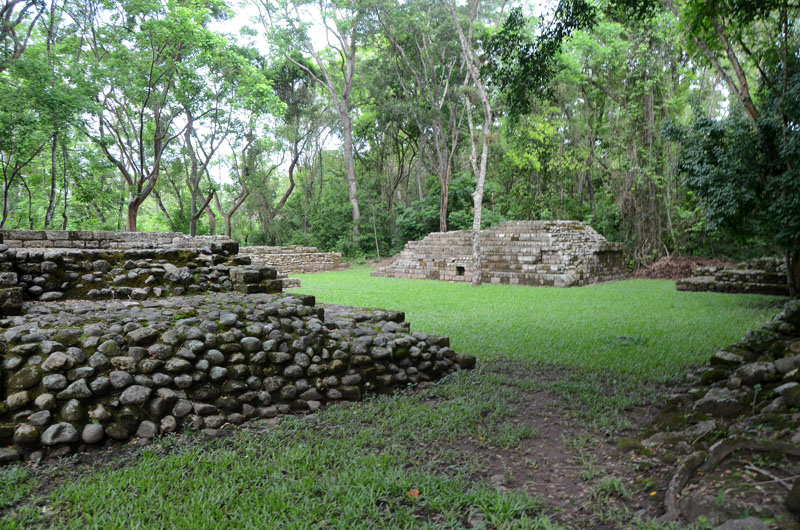 |
The Mayans had no graveyards, The dead were interred in tombs under, or next to, the house |
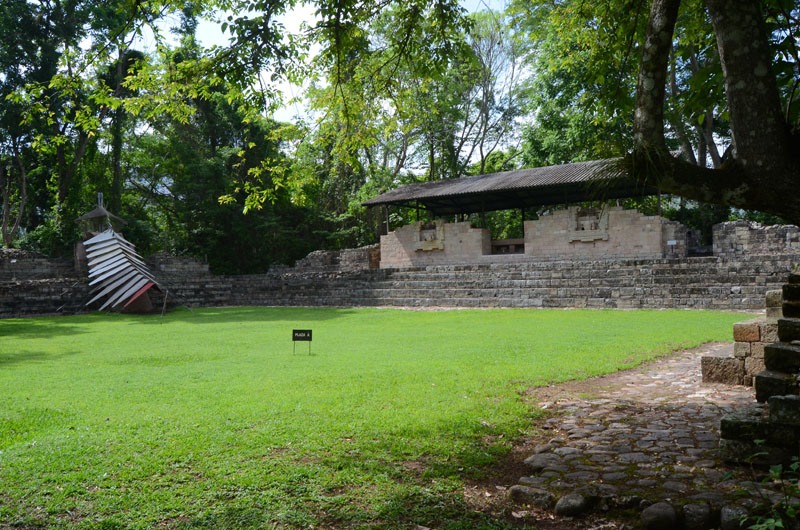 |
 |
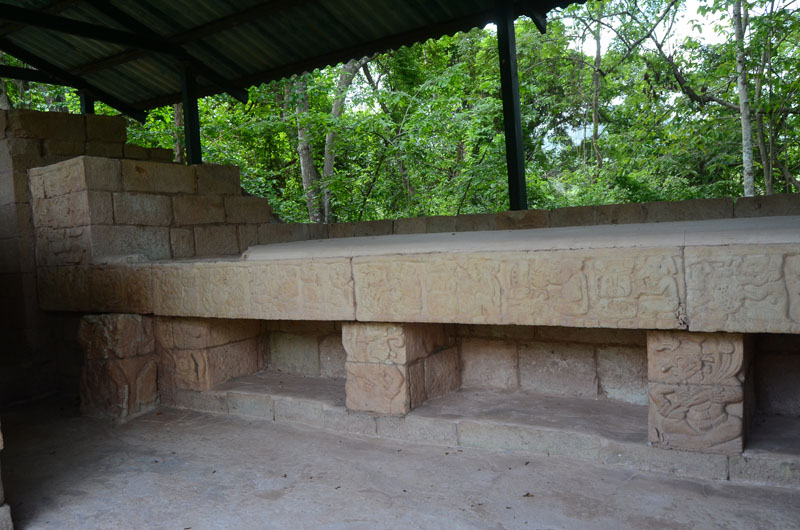 |
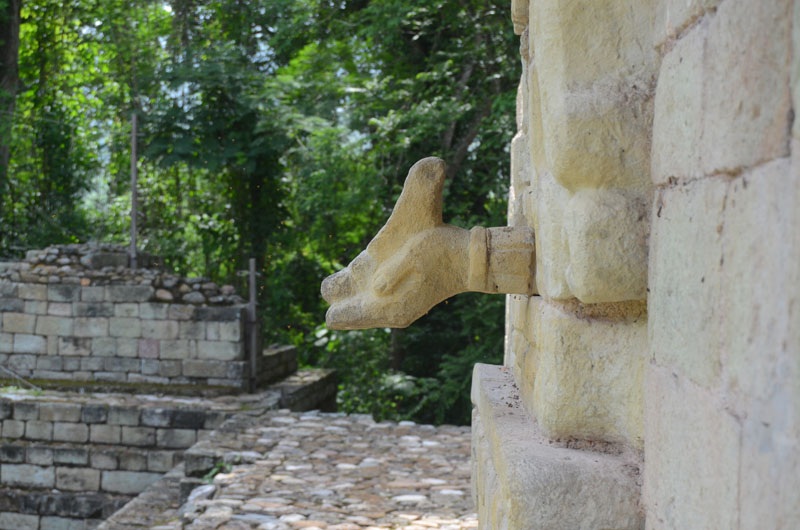 |
The house of the scribe, and compound (plaza) for him, his workshops, and his workers |
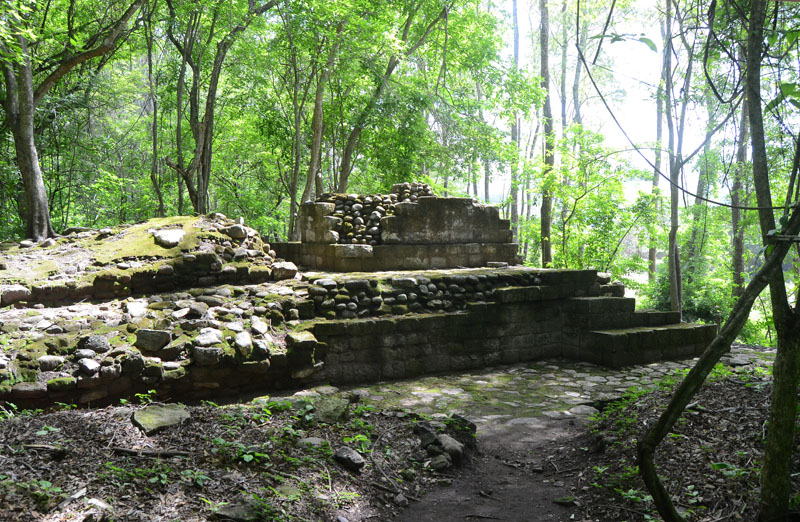 |
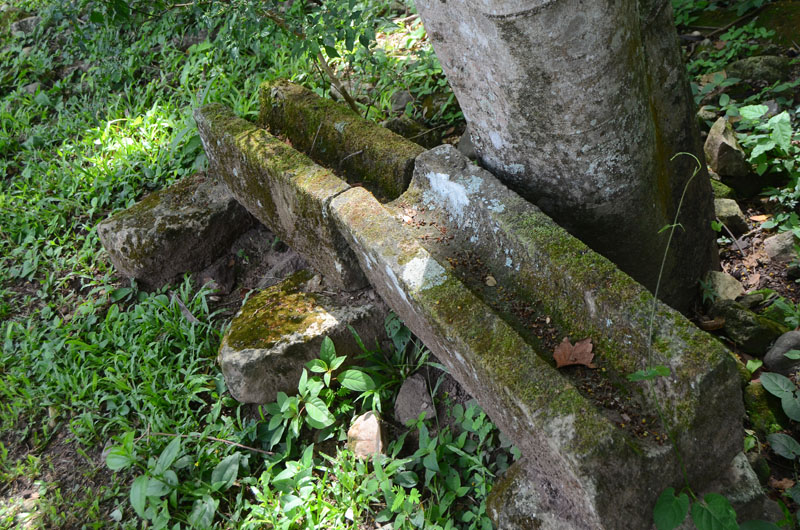 |
Estate by the river, and how water was channeled around |
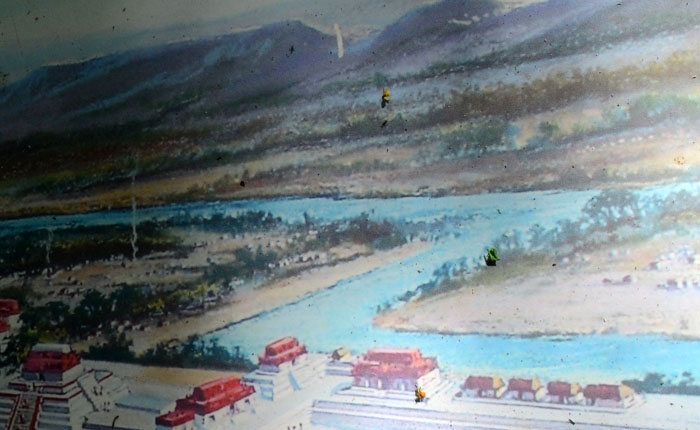 |
| Part of a hypothetical reconstruction of what the Las Sepultura (called by a different name in Mayan) along the river Copan's waterfront. |
Copan Museum
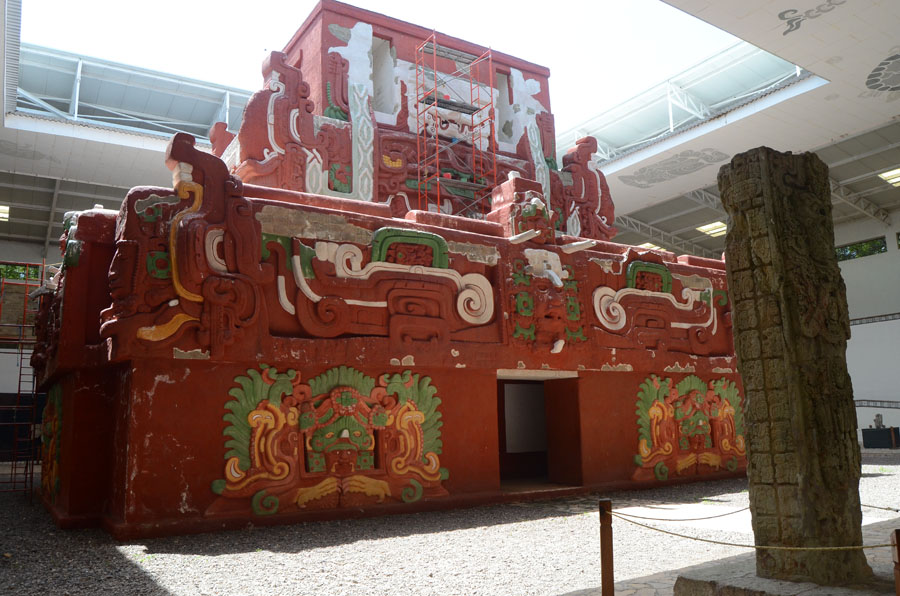 |
Walking from a dark tunnel from the entrance into open and well lighted space of the museum was a dazzling experience. |
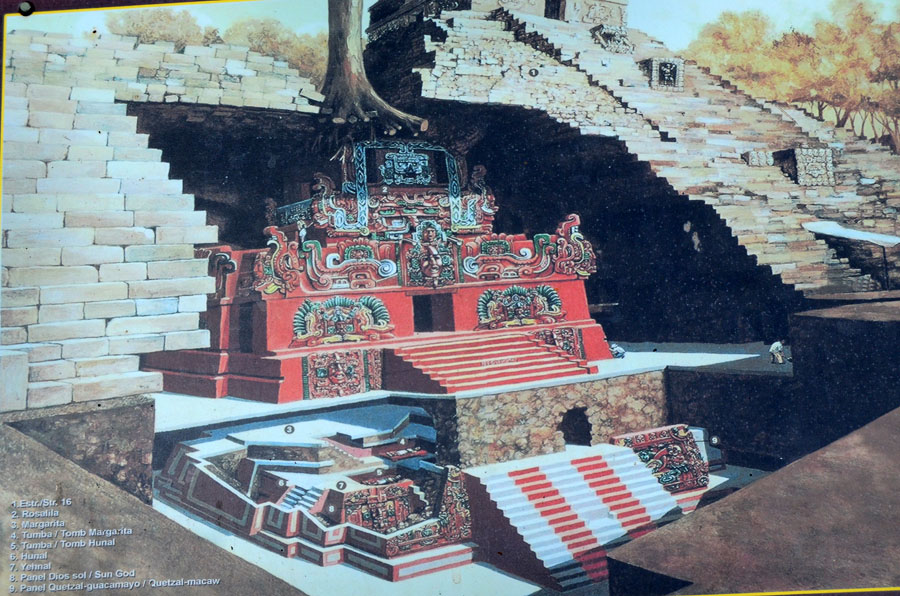 |
What we are looking at is a reconstruction, still not finished by a long shot, of this temple, inside of the large pyramid. That is, everything above the steps, not the steps and not the below-ground portion. Too bad one can't get access to this. |
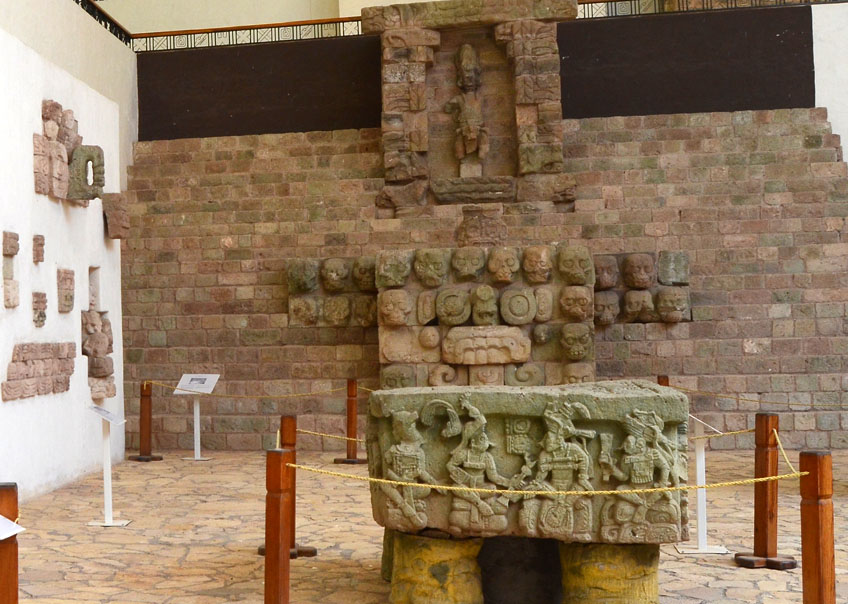 |
You can also recognize in the artist's rendering the staircase of skulls, in the background. Here is the real one |